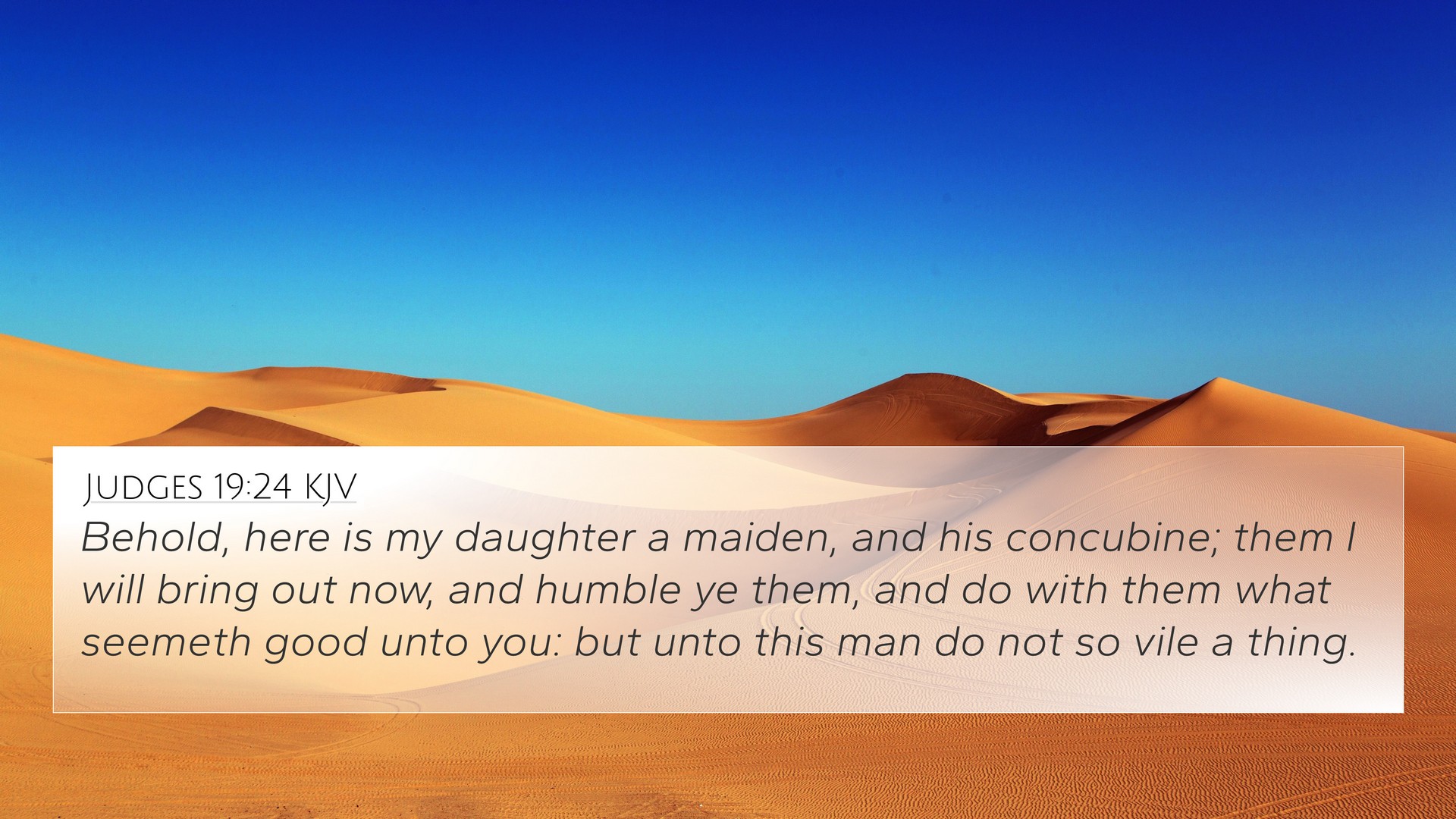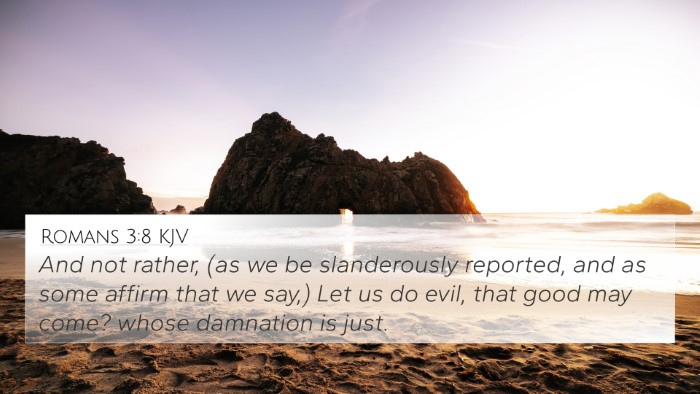Understanding Judges 19:24
Judges 19:24 presents a challenging narrative within the biblical text, highlighting moral complexities and the dire circumstances faced in the times of the Judges. The verse states, "Behold, here is my daughter a maiden, and his concubine; them I will bring out now; humble ye them, and do with them what seemeth good unto you: but unto this man do not so vile a thing." This response ignites discussions regarding hospitality, moral decay, and societal ethics in ancient Israel.
Contextual Analysis
To grasp the meaning of this verse, we must consider its context within the book of Judges. This period in Israel was marked by a lack of centralized leadership, leading to a cycle of sin, oppression, and deliverance.
- Moral Decay: The offer of the man's daughter and concubine reflects the degradation of social mores and the extremities to which individuals would go to protect their own. Matthew Henry emphasizes the depth of this moral failure, indicating that such actions were a stark deviation from God’s intent for relationships and honor.
- Hospitality and Protection: In ancient Near Eastern culture, hospitality was sacred. Adam Clarke points out that the man’s desire to protect the stranger showcases a twisted sense of duty. Rather than protecting the innocent, he offers up those who should be safeguarded, revealing profound societal issues.
- Comparative Analysis: Albert Barnes notes that this scenario can be likened to the story of Sodom in Genesis 19, where similar hospitality expectations lead to wicked demands. This reflection positions Judges 19:24 as part of a larger narrative about the consequences of abandoning divine law and truths.
Thematic Connections
This verse connects to several biblical themes and can be cross-referenced with various passages to enhance our understanding:
- Genesis 19:8: The offer of Lot to protect his guests parallels the situation in Judges, highlighting the tension between hospitality and moral integrity.
- Leviticus 18:22: This verse discusses the laws governing sexual relations, providing context for understanding the moral implications behind the actions discussed in Judges 19.
- Matthew 5:28: Jesus’ teachings on lust and sin echo the moral issues present in Judges, reminding us that inner desires can lead to devastating actions.
- 1 Timothy 5:8: Paul emphasizes the importance of protecting one’s family, contrasting with the actions of the Levite who failed to safeguard those entrusted to him.
- Ephesians 5:3: Paul instructs believers to avoid sexual immorality, which highlights the sinfulness surrounding the events of Judges 19.
- 2 Peter 2:6-9: The reference to Sodom and Gomorrah reinforces the correlation between divine judgment and societal corruption.
- Proverbs 14:34: This passage speaks to the righteousness that exalts a nation, linking back to the need for moral integrity among leaders and the people.
Inter-Biblical Dialogue and Cross-Referencing
Engaging in cross-referencing facilitates a deeper understanding of Judges 19:24 within the broader biblical narrative. Employing tools for Bible cross-referencing, we can trace themes and ethical discussions through scripture.
With insights from Matthew Henry, Adam Clarke, and Albert Barnes, we find that making connections between these verses helps illuminate the text’s complex moral landscape. Themes of hospitality, protection, and the consequences of moral decay present throughout scripture can be further analyzed using:
- Bible concordance to locate related texts.
- Bible reference resources, such as cross-reference guides.
- Comprehensive Bible cross-reference materials to explore thematic connections more broadly.
Practical Application and Reflection
Judges 19:24 invites reflection upon our own ethical standards and how society views the protection of the vulnerable. The verse urges modern readers to consider the implications of their actions and decisions, stressing that moral choices have far-reaching consequences.
Conclusion
In summary, Judges 19:24 is not just a historical account but serves as a moral lesson that transcends time. By examining the verse through various commentaries and cross-referencing with related biblical texts, believers can gain a holistic understanding of its implications for faith and conduct.
Related Themes for Further Study
- How to find cross-references in the Bible for comprehensive studies.
- Identifying connections between Old and New Testament ethical teachings.
- Cross-referencing themes of hospitality and morality throughout scripture.
- Links between the Prophets and Apostolic teachings regarding social ethics.






